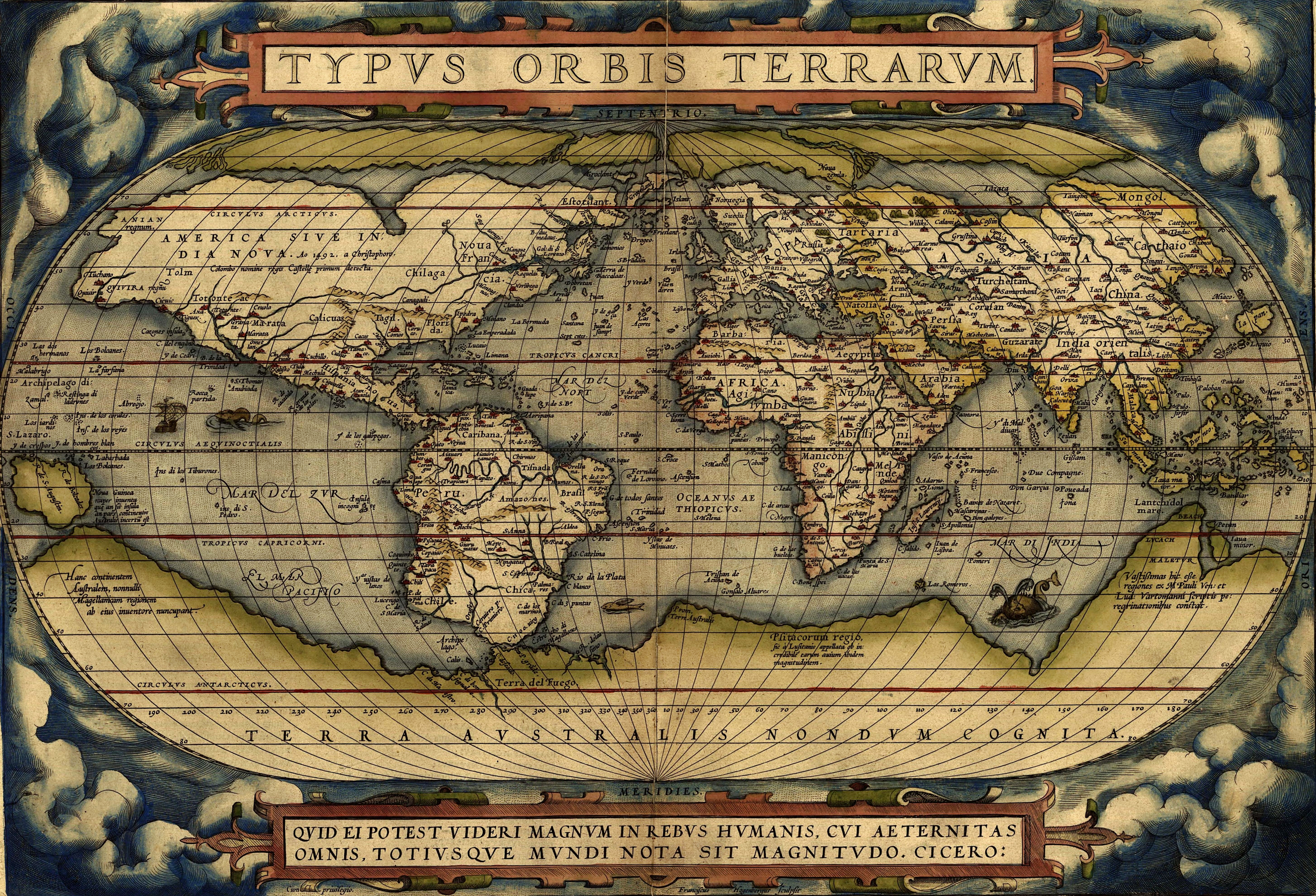20 May 1570: Cartographer Abraham Ortelius Issues the First Modern Atlas
00:01
The Theatrum Orbis Terrarum inspired a six volume work entitled Civitates orbis terrarum edited by Georg Braun and illustrated by Frans Hogenberg with the assistance of Ortelius himself.
Image source: Wikipedia
Image source: Wikipedia
Via Wikipedia.
Abraham Ortelius (Abraham Ortel) (April 2, 1527 - June 28, 1598) was a cartographer and geographer, generally recognised as the creator of the first modern atlas. He was born in Antwerp in what is now Belgium. A member of the influential Ortelius family of Augsburg, he traveled extensively in Europe. He is specifically known to have traveled throughout the Seventeen Provinces; south and west Germany (e.g., 1560, 1575–1576); France (1559-1560); England and Ireland (1576), and Italy (1578, and perhaps twice or thrice between 1550 and 1558).More here.
Beginning as a map-engraver, in 1547 he entered the Antwerp guild of St Luke as afsetter van Karten. His early career is that of a businessman, and most of his journeys before 1560 are for commercial purposes (such as his yearly visits to the Frankfurt book and print fair). In 1560, however, when travelling with Mercator to Trier, Lorraine and Poitiers, he seems to have been attracted, largely by Mercator’s influence, towards the career of a scientific geographer; in particular he now devoted himself, at his friend’s suggestion, to the compilation of that atlas, or Theatrum Orbis Terrarum (Theatre of the World), by which he became famous.
Runner-up: Considering the hype surrounding the release of the blockbuster movie, The Da Vinci Code: 20 May 325 C.E., The First Council of Nicaea – the first Ecumenical Council of the Christian Church – is held. The Council of Nicaea was historically significant because it was the first effort to attain consensus in the church through an assembly representing all of Christendom.









0 Comments:
Post a Comment
<< Home